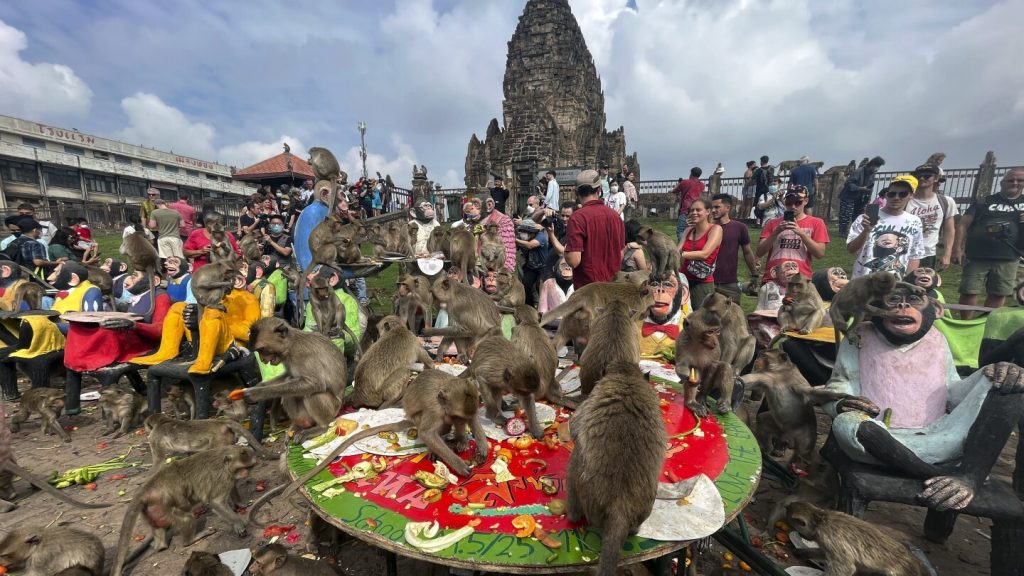Thai wildlife officials in Lopburi have unveiled a plan to address the longstanding conflict between humans and monkeys in the central Thai city. The macaques that inhabit the area are part of the local culture and a major tourist attraction. However, over the past decade, there have been numerous dangerous encounters between the monkeys and residents and visitors, prompting the need for action. Recent incidents, including a woman dislocating her knee after a monkey pulled her down and another man being knocked off his motorcycle by a hungry monkey, have fueled outrage.
To address the issue, authorities are working to capture around 2,500 urban monkeys and place them in large enclosures. The goal is to find a balance where a limited number of monkeys can remain free in the city while preventing further conflicts with humans. A monkey-catching campaign has been launched, focusing on capturing more aggressive alpha males first. So far, 37 monkeys have been caught and placed under the care of wildlife authorities or sent to the Lopburi zoo. The plan includes building separate cages for different troops of monkeys to avoid fighting.
The monkeys play a significant role in the local culture of Lopburi, where they are seen as a symbol of the province. However, the ongoing conflicts with humans have led to concerns about the safety of both parties. Some blame the issue on tourists and residents feeding the monkeys, which has drawn them into the city and increased their numbers. Previous efforts to limit feeding have not been successful, as rival bands of monkeys who were not fed in designated areas started harassing humans for food elsewhere. Wildlife officials acknowledge the need for better control measures to address the simian population.
The director of the Wildlife Conservation Office emphasized the importance of adapting to the presence of the monkeys in the city, noting that a lack of natural food sources drives the animals to seek food from humans. Previous initiatives to control the monkey population through neutering have not been sufficient, leading to the current situation in Lopburi. Authorities are also working in other areas of Thailand facing similar issues with monkeys, such as Prajuab Kiri Khan and Phetchaburi. The plan is to contain the monkeys in large enclosures and potentially release a limited number back into the city, while ensuring the safety of residents and visitors.
Overall, the situation in Lopburi highlights the complex relationship between humans and wildlife in urban environments. As efforts are made to address the conflict between monkeys and humans, it is essential to find sustainable solutions that protect both parties and preserve the local culture and tourism industry. By working with wildlife experts and implementing effective population control measures, authorities hope to bring peace to the city and ensure the safety of residents, visitors, and the beloved macaques of Lopburi.


